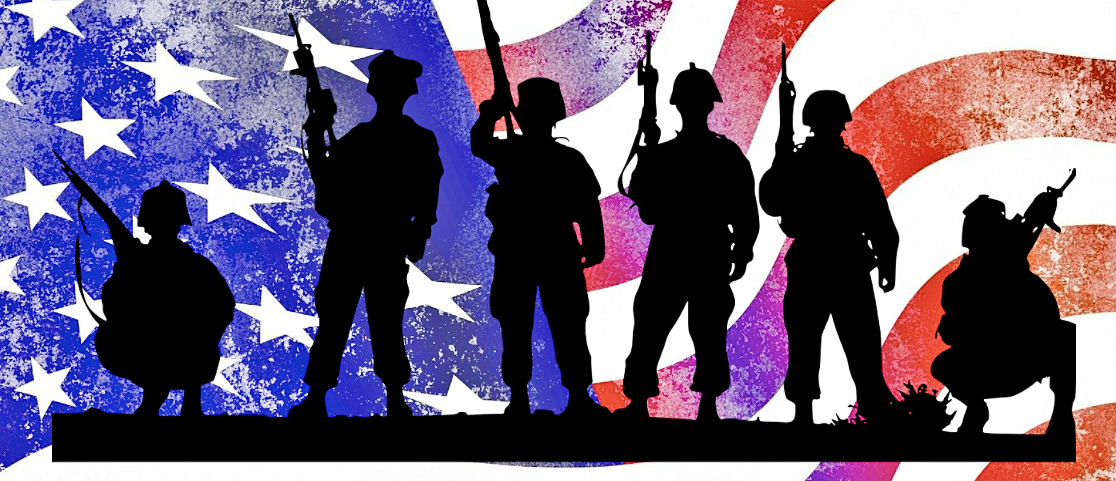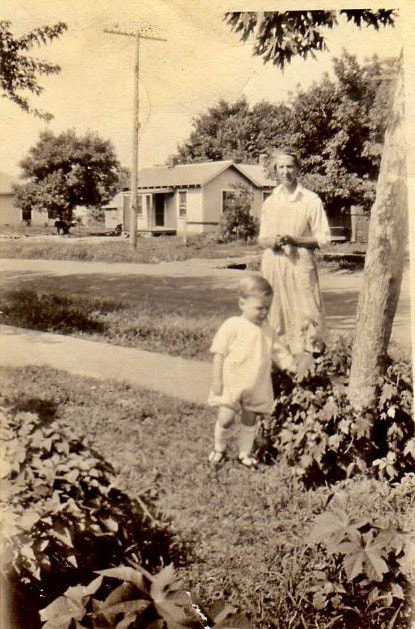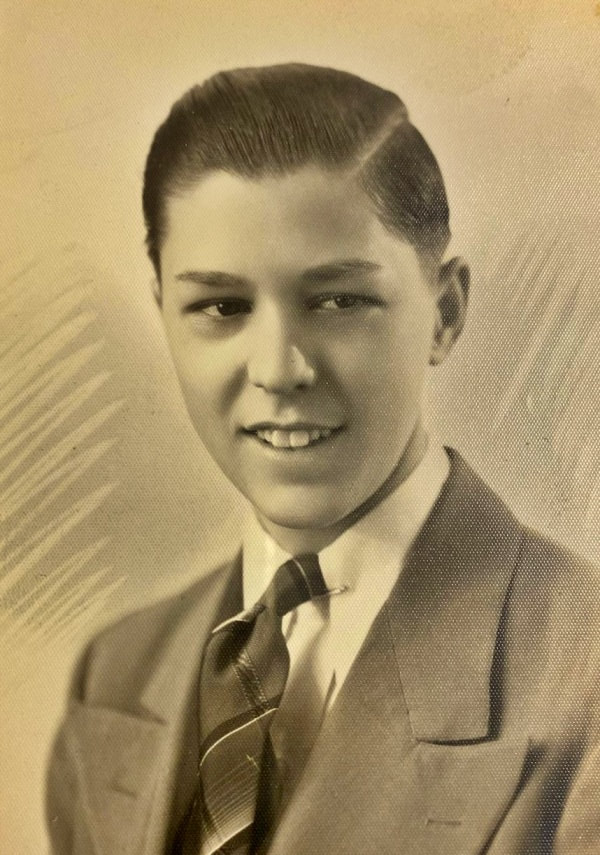Courtesy Photos/Gary L. Noller
June 1, 2023
The Meaning of Memorial Day
By Gary L. Noller
The Bandera Prophet
Excellent weather brought hundreds of viewers to the annual Memorial Day weekend parade in Bandera. It was a fitting way to greet the summer.
I grew up in Dodge City, Kansas. As a youth I do not remember Memorial Day parades. But my family observed the special day in remembrance of loved ones.
My uncle, Fred William Noller, was killed-in-action on Okinawa, Japan, on April 9, 1945. He served as a forward observer with the 6th Joint Assault Support Company of the 6th U.S. Marine Division. He was 23 years old.
My grandmother, Winnie May Moss Noller, had already lost one son to a brain hemorrhage and her spouse to tuberculosis. She was left with two daughters and two sons and 10 grandchildren.
Many years ago I was given an old cardboard shoe box with some mementos that were kept by my grandmother. One of the items was a tattered envelope with the words “save this” written in pencil on the back.
Inside the envelope was a letter dated June 25, 1945. It was written by Lieutenant Larimer D. Elliot, United States Marine Corps. Lt. Elliot told of my uncle's death. It is transcribed below.
Dear Mrs. Noller:
Having served as the officer in charge of the air liaison team under which your son served, I came to know him well. Not only during the current operation but before it. I am writing to you in the hopes of giving you the most complete and accurate account of your son's death.
During our training period, as well as in combat, Fred was the best possible type of Marine. He was assigned air-ground liaison work and was a member of a team which accompanied the assault infantry units as they attacked. In his capacity as radio operator, he was responsible for calling upon aircraft to bomb and strafe enemy installations which held up the advance of our troops. Because of his previous experience in air-ground work, and many months of combat service, as well as his natural ability, he was the nucleus around which his team was built.
During the Sixth Marine Division's advance north to Motobu Peninsula, Fred was attached to 29th Regiment which was engaged in fighting near the town of Nago. On the day your son died the regiment had been engaged in heavy fighting and in the evening the area was subjected to heavy enemy mortar fire. One shell exploded very close to Fred's foxhole killing him instantly. The doctor who was in his immediate vicinity examined him and determined that nothing could be done. Later he was removed and sent to the rear for burial.
He was buried, after simple services, in the Sixth Marine Division cemetery near where little more than a week before he had just landed. His grave is marked with a white cross lettered with his name and organization. Periodic services are held in the small white chapel which overlooks the sea and his grave is well cared for by a permanent detail provided for that purpose.
Although I may not be able to understand fully the anguish of a mother who has lost here son, but knowing him as I did, I know I can understand some of the loss you must feel because I share that with you. In a sense an organization such as Fred was in is a cross-section of an American community. Fred was one of the admired and respected men in his organization. I know that those same qualities would have marked his life in his community after the war. It is the loss of young men like Fred that strikes the deepest whether we be his parent or one who was privileged to serve with him.
With sincerest condolences,
Larimer D. Elliott
As a child, my family observed what was then called Decoration Day. My father loaded us in the family car and we picked up Grandma and Uncle John and proceeded to Maple Grove Cemetery.
Once there, we joined other family members and placed flowers on the grave of my grandfather, Charles Noller. After that was complete Grandma would say, “Let's go find Fred's grave.” It was just a short distance away.
Although I was very young I realized that this day had a special meaning to my family. As an adult I have always faithfully attended Memorial Day observances. It is an obligation that I freely accept.
I am glad that I had an opportunity to learn about my uncle Fred. An aunt told me that he was her most handsome brother and that he amazed everyone with his photographic memory.
I wish I could have met him. And that my grandmother would never have become a Gold Star mother.
I do not know if anyone will visit those graves this Memorial Day. It is a twelve hour trip for me. But I promise myself that I will pay a visit to the graves of Grandma, Grandpa, Uncle Fred, and Uncle John, the next time I visit Dodge City.
They will always be remembered. Even the ones I never got to meet.
[Gary Noller is a Vietnam War veteran and a member of American Legion Post 157 in Bandera.]
I grew up in Dodge City, Kansas. As a youth I do not remember Memorial Day parades. But my family observed the special day in remembrance of loved ones.
My uncle, Fred William Noller, was killed-in-action on Okinawa, Japan, on April 9, 1945. He served as a forward observer with the 6th Joint Assault Support Company of the 6th U.S. Marine Division. He was 23 years old.
My grandmother, Winnie May Moss Noller, had already lost one son to a brain hemorrhage and her spouse to tuberculosis. She was left with two daughters and two sons and 10 grandchildren.
Many years ago I was given an old cardboard shoe box with some mementos that were kept by my grandmother. One of the items was a tattered envelope with the words “save this” written in pencil on the back.
Inside the envelope was a letter dated June 25, 1945. It was written by Lieutenant Larimer D. Elliot, United States Marine Corps. Lt. Elliot told of my uncle's death. It is transcribed below.
Dear Mrs. Noller:
Having served as the officer in charge of the air liaison team under which your son served, I came to know him well. Not only during the current operation but before it. I am writing to you in the hopes of giving you the most complete and accurate account of your son's death.
During our training period, as well as in combat, Fred was the best possible type of Marine. He was assigned air-ground liaison work and was a member of a team which accompanied the assault infantry units as they attacked. In his capacity as radio operator, he was responsible for calling upon aircraft to bomb and strafe enemy installations which held up the advance of our troops. Because of his previous experience in air-ground work, and many months of combat service, as well as his natural ability, he was the nucleus around which his team was built.
During the Sixth Marine Division's advance north to Motobu Peninsula, Fred was attached to 29th Regiment which was engaged in fighting near the town of Nago. On the day your son died the regiment had been engaged in heavy fighting and in the evening the area was subjected to heavy enemy mortar fire. One shell exploded very close to Fred's foxhole killing him instantly. The doctor who was in his immediate vicinity examined him and determined that nothing could be done. Later he was removed and sent to the rear for burial.
He was buried, after simple services, in the Sixth Marine Division cemetery near where little more than a week before he had just landed. His grave is marked with a white cross lettered with his name and organization. Periodic services are held in the small white chapel which overlooks the sea and his grave is well cared for by a permanent detail provided for that purpose.
Although I may not be able to understand fully the anguish of a mother who has lost here son, but knowing him as I did, I know I can understand some of the loss you must feel because I share that with you. In a sense an organization such as Fred was in is a cross-section of an American community. Fred was one of the admired and respected men in his organization. I know that those same qualities would have marked his life in his community after the war. It is the loss of young men like Fred that strikes the deepest whether we be his parent or one who was privileged to serve with him.
With sincerest condolences,
Larimer D. Elliott
As a child, my family observed what was then called Decoration Day. My father loaded us in the family car and we picked up Grandma and Uncle John and proceeded to Maple Grove Cemetery.
Once there, we joined other family members and placed flowers on the grave of my grandfather, Charles Noller. After that was complete Grandma would say, “Let's go find Fred's grave.” It was just a short distance away.
Although I was very young I realized that this day had a special meaning to my family. As an adult I have always faithfully attended Memorial Day observances. It is an obligation that I freely accept.
I am glad that I had an opportunity to learn about my uncle Fred. An aunt told me that he was her most handsome brother and that he amazed everyone with his photographic memory.
I wish I could have met him. And that my grandmother would never have become a Gold Star mother.
I do not know if anyone will visit those graves this Memorial Day. It is a twelve hour trip for me. But I promise myself that I will pay a visit to the graves of Grandma, Grandpa, Uncle Fred, and Uncle John, the next time I visit Dodge City.
They will always be remembered. Even the ones I never got to meet.
[Gary Noller is a Vietnam War veteran and a member of American Legion Post 157 in Bandera.]



